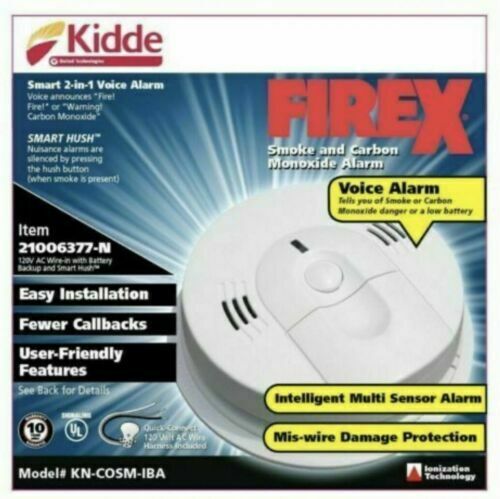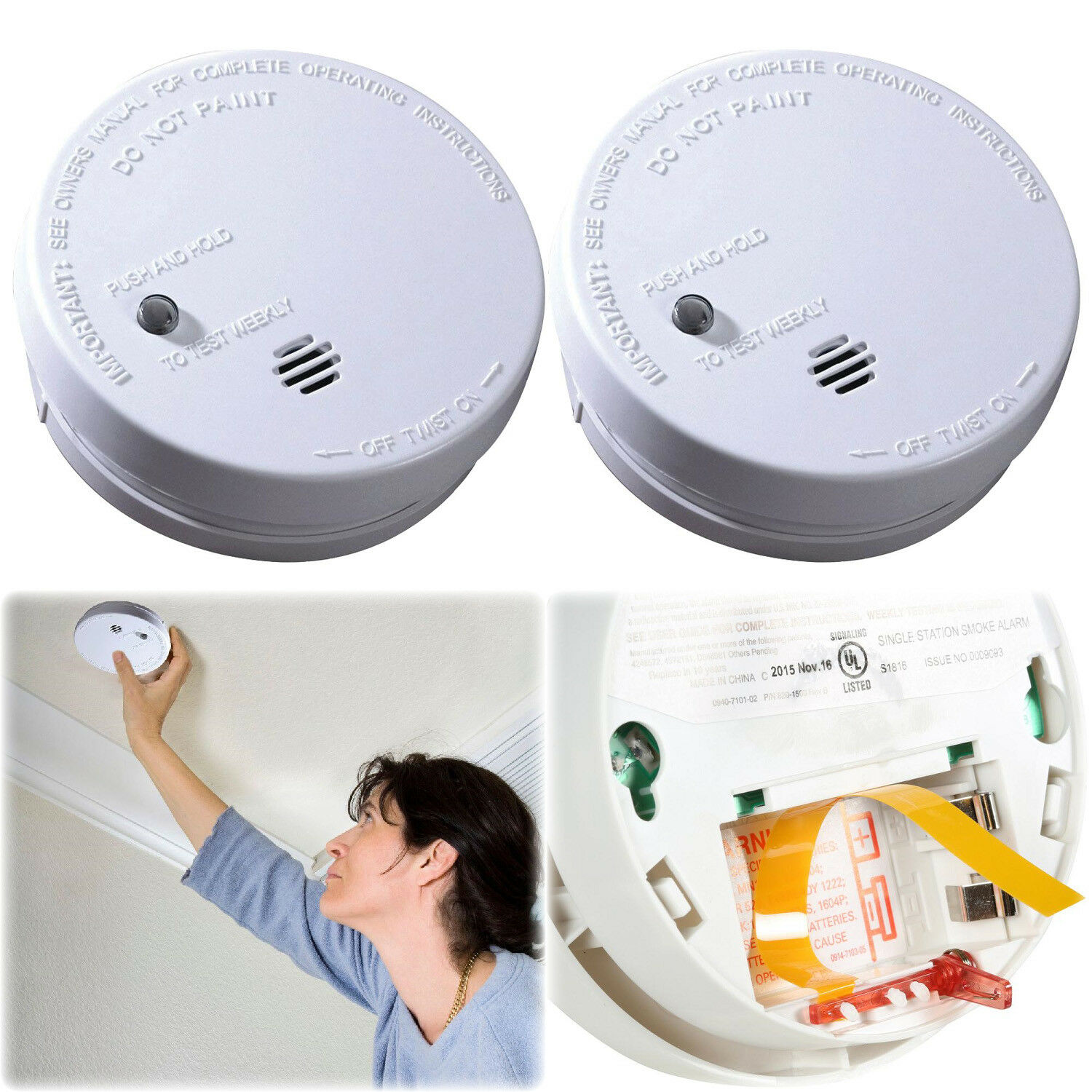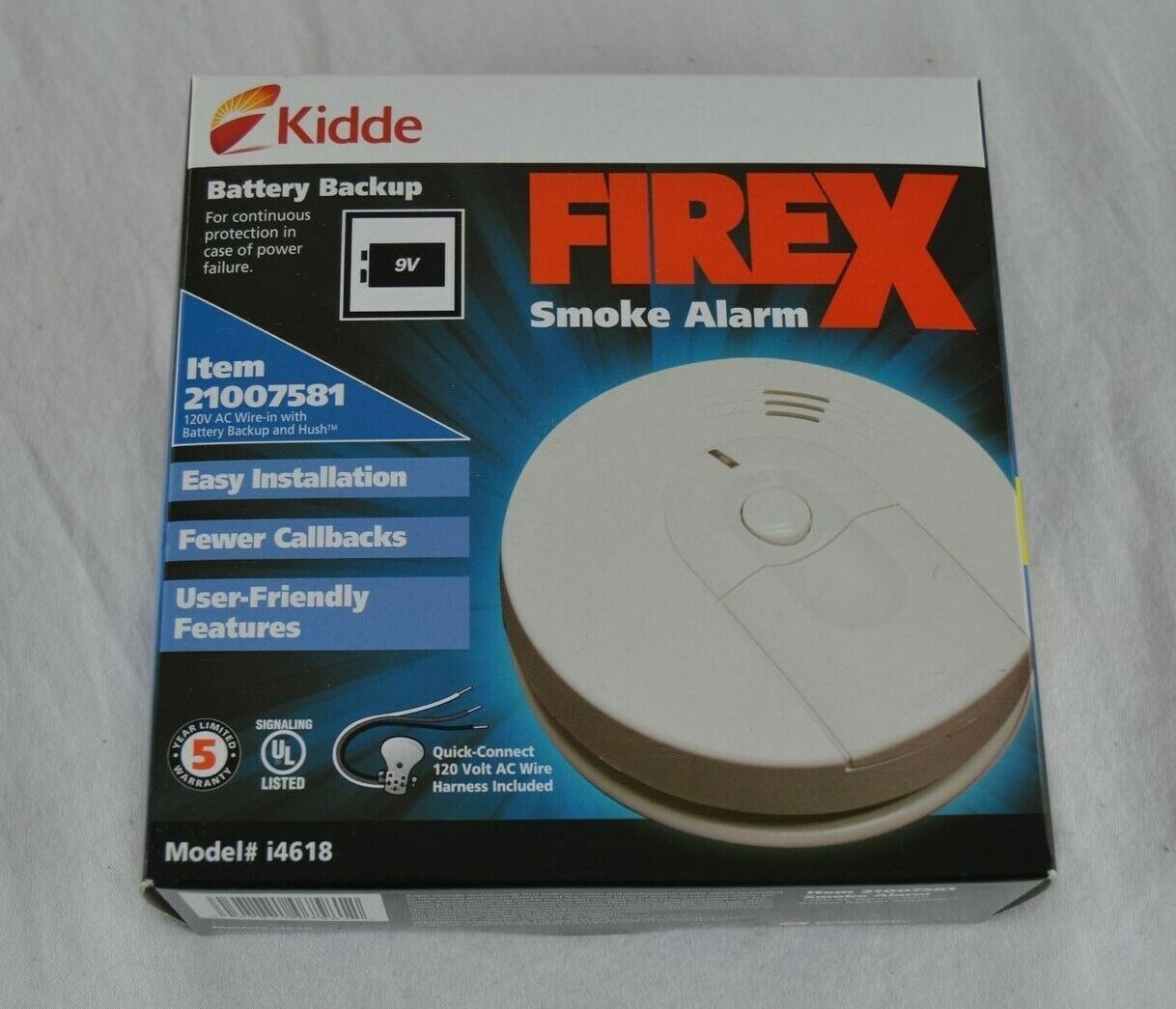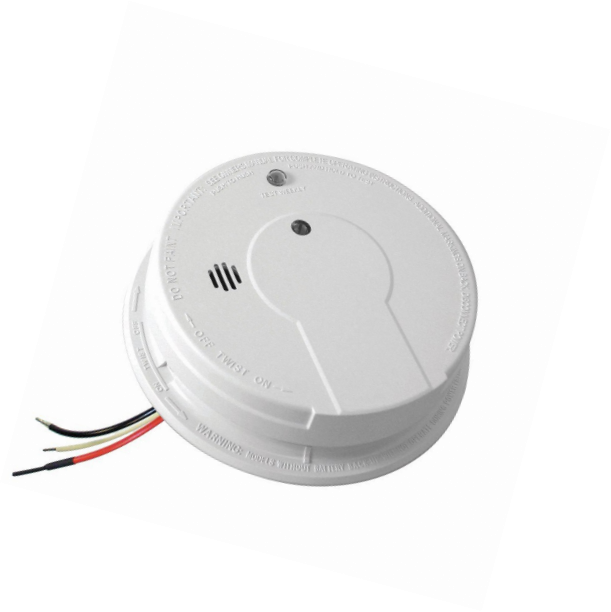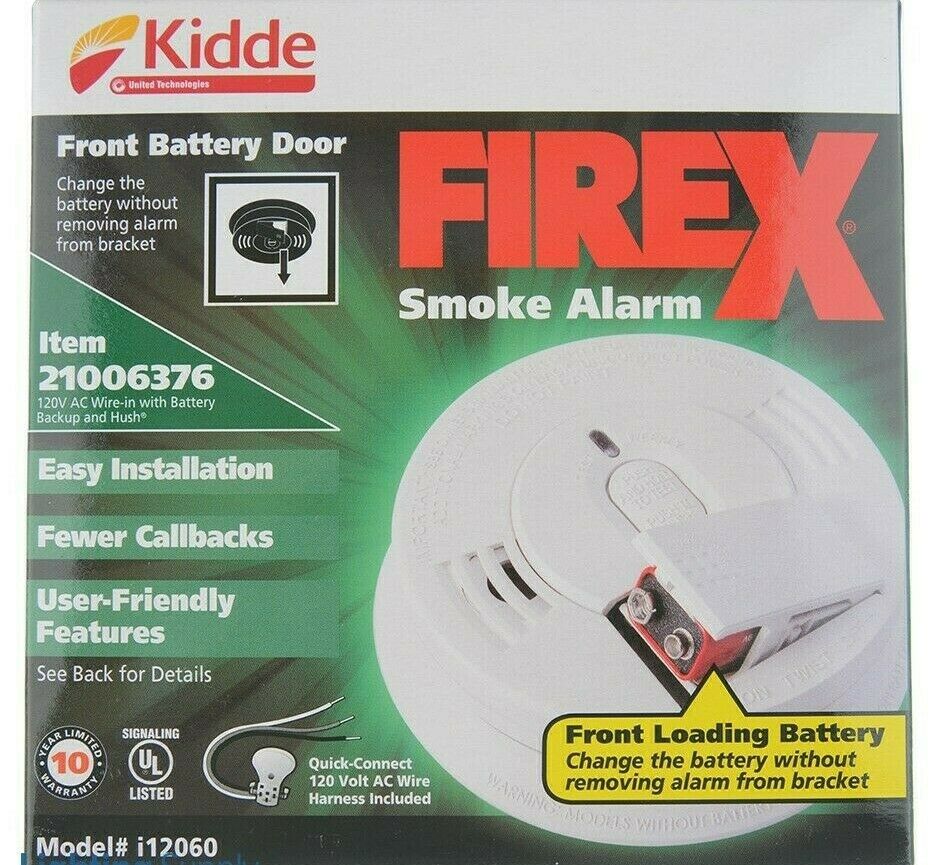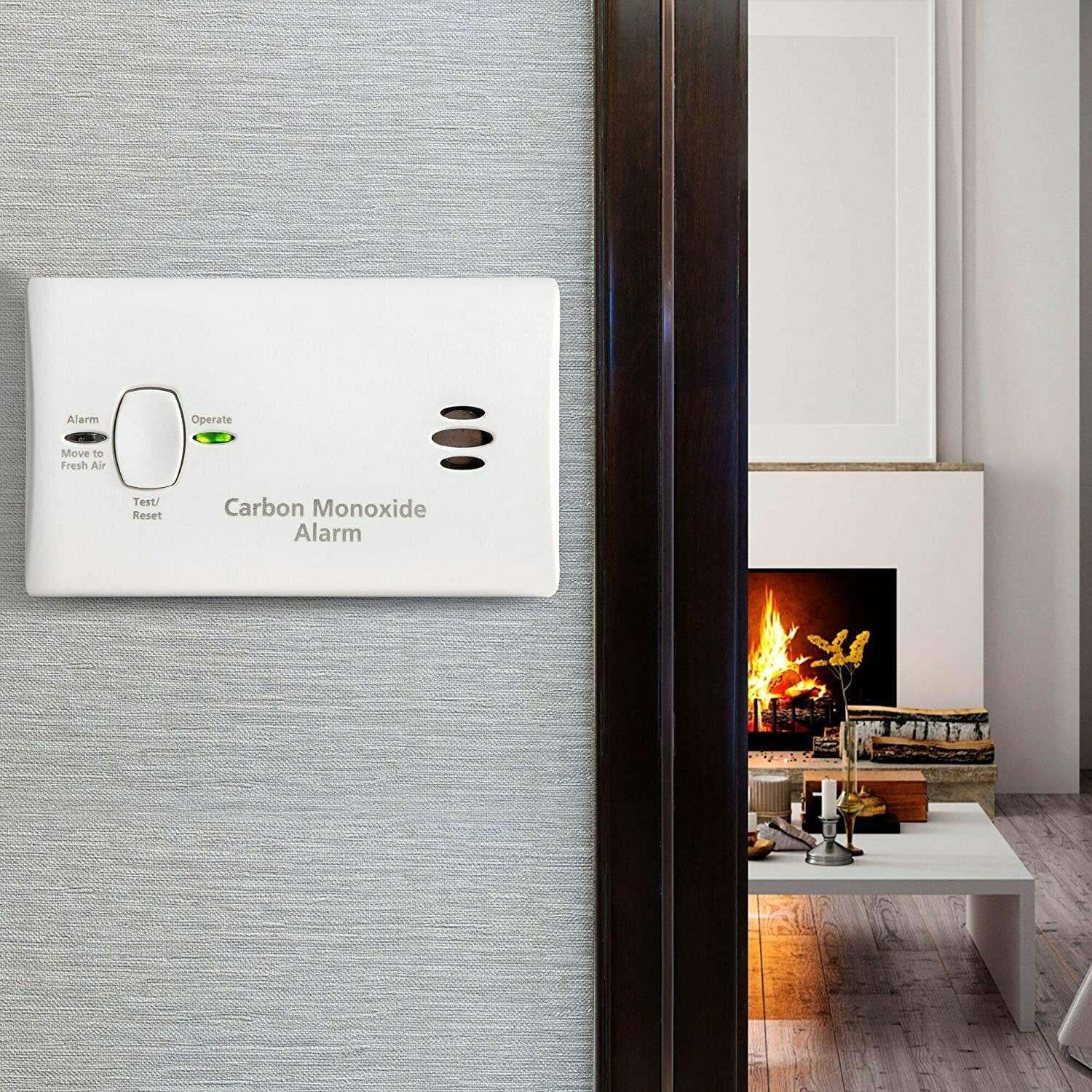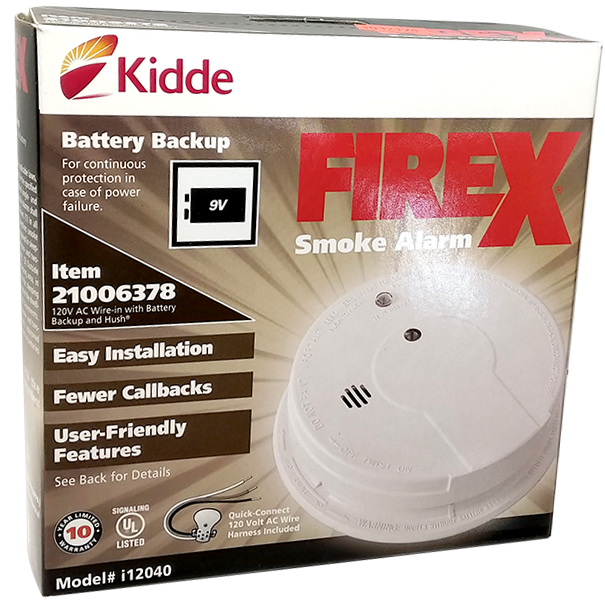-40%
KIDDE/FIREX KN-COSM-IBA COMBINATION SMOKE AND CARBON MONOXIDE ALARM (PREMIUM)
$ 15.31
- Description
- Size Guide
Description
DescriptionThe Kidde KN-COSM-IBA uses breakthrough technology to offer a fast response to real fires, including smoldering and fast-flaming, as well as protect you from carbon monoxide and dramatically reduce the chance of nuisance alarms. The Intelligent sensor technology combines the detection capabilities of an ionization smoke sensor – which is more likely to detect smaller, less visible fire particles, like those produced by flaming fires – with that of an electrochemical sensor, which is used to detect CO. Since carbon monoxide is present in all fires, having both detection chambers work together in one alarm is a breakthrough in the fire safety industry. When either sensor notices a potential hazard, it will communicate with the other. Depending on what is detected, the alarm will adjust its smoke sensitivity in order to better discriminate between a real hazard and a false one. This constant communication enhances the alarm’s overall performance in all fires, and significantly reduces the potential for a nuisance alarm.
Leading authorities recommend that both ionization and photoelectric smoke alarms be installed to help ensure maximum detection of the various types of fires that can occur within the home. Ionization sensing alarms may detect invisible fire particles (associated with fast flaming fires) sooner than photoelectric alarms. Photoelectric sensing alarms may detect visible fire particles (associated with slow smoldering fires) sooner than ionization alarms.
Alarm Warnings
Fire:
The red LED will flash and be accompanied by three long alarm beeps followed by a verbal warning message “FIRE!”. The alarm pattern will repeat until smoke is eliminated.
Carbon Monoxide:
Four short alarm beeps followed by a verbal warning “WARNING! CARBON MONOXIDE!” This continues until the unit is reset or the CO is eliminated.
Low Battery:
One chirp followed by warning “LOW BATTERY.” The red LED light will flash. This pattern will continue every minute for at least seven days. Under battery power, the “LOW BATTERY” voice only occurs once every 15 minutes.
Voice Hush Indication:
“HUSH MODE ACTIVATED” and “HUSH MODE CANCELLED” voice announcement.
Peak Level Memory:
If the alarm had detected a CO level of 100ppm or higher when the Test/Reset button is pressed, the unit will announce “CARBON MONOXIDE PREVIOUSLY DETECTED” to warn of the CO incident.
Technical Specifications
Model:
KN-COSM-IBA
Power Source:
120VAC, 60Hz 45mA max per alarm 2 AA battery backup
SmokeSensor:
Ionization
CoSensor:
Electrochemical
Audio Alarm:
85dB at 10ft
Temperature Range:
40˚F (4.4˚C) to 100˚F (37.8˚C)
Humidity Range:
10%-95% relative humidity, non-condensing
Size:
5.6” in diameter x 1.8” depth
Weight:
1 lb.
Wiring:
Quick connect plug with 6” pigtails
Interconnects:
Up to 24 Kidde devices (of which 18 can be initiating)
Warranty:
10 year limited
Architectural and Engineering Specifications
The combination smoke and carbon monoxide alarm shall be Kidde model KN-COSM-IBA or approved equal. It shall be powered by 120VAC, 60Hz source with two AA battery backup. The temperature operating range shall be between 40˚F and 100˚F (4˚C and 38˚C) and the humidity operating range shall be 10% - 95% relative humidity, non-condensing. The unit shall incorporate an ionization smoke sensor with nominal sensitivity of 0.89%/ft. The CO sensor shall be of a fuel cell design and shall meet the sensitivity requirements of Underwriters Laboratories UL2034 Single and Multiple Station Carbon Monoxide Detectors. The combination alarm can be installed on the surface of any wall or ceiling following the UL/NFPA/Manufacturer’s recommended placement guidelines. The alarm can be installed on any standard single gang electrical box, up to a 4” octagon junction box. The electrical connection (to the alarm) shall be made with a plug-in connector. The unit shall provide optional tamper resistance that deters removal of the unit from the wall or ceiling. No additional pieces shall be required to activate this feature. A maximum of 24 Kidde devices can be interconnected in a multiple station arrangement. The interconnect system must not exceed the NFPA (National Fire Protection Association) limit of 18 initiating devices, of which 12 can be smoke alarms. With 18 initiating devices (smoke, heat, CO, etc), interconnected, it is still possible to interconnect 6 strobe lights and or relay modules. The alarm shall include a test button that will electronically simulate the presence of smoke and CO and cause the unit to go into both modes of alarm. This sequence tests the unit’s electronics to ensure proper operation. The CO sensor will not alarm to levels of CO below 30 ppm and will alarm in the following time range when exposed to the corresponding levels of CO. 70 ppm CO Concentration 60 – 240 minutes 150 ppm CO Concentration 10 – 50 minutes 400 ppm CO Concentration 4 – 15 minutes The combination alarm shall have two methods of warninwarning for danger: a piezoelectric horn that is rated at 85 decibels at 10 feet and a voice warning that identifies the danger. For a CO incident, the horn will sound in the repetitive manner – four (4) fast beeps, a short pause, four (4) fast beeps, a short pause. In between, the unit will announce “Warning Carbon Monoxide!” In a Smoke incident, the horn will sound in the repetitive manner – three (3) beeps, a pause, three (3) beeps, a pause. In between, the unit will announce “FIRE!” The unit shall incorporate a 2 LED display. A green LED will be steady on when AC power is present, flash every 60 seconds when in battery only mode, every second to indicate alarm memory, and every 2 seconds to indicate the Hush“ mode is active. A red LED will flash in unison with the alarm sounder pattern. The unit shall include the HushTM feature that silences the unit for approximately 9 minutes if a nuisance alarm condition occurs. The Green LED on the alarm will flash every 2 seconds while in HushTM and will automatically reset itself. It also provides voice annunciation of “HUSH MODE ACTIVATED” when HushTM is activated and “HUSH MODE CANCELLED” when the Hush cycle ends. The unit shall also indicate a low battery warning utilizing each of the following methods: a brief alarm chirp, the voice announcement of “Low Battery!” The unit shall at a minimum meet the requirements of UL 2034, UL217, NFPA72, (chapter 11 2002 edition) The State of California Fire Marshall, NFPA101 (One and two family dwellings) Federal Housing Authority (FHA), Housing and Urban Development (HUD). It shall also include a 10-year manufacturer’s limited warranty.
Installtion of Smoke Alarm
The combination alarm should be installed to comply with all local codes having jurisdiction in your area, Article 760 of the National Electric Code, and NFPA 72. Make certain all alarms are wired to a single, continuous (non-switched) power line, which is not protected by a ground fault interrupter. A maximum of 1000 ft. of wire can be used in the interconnect system. Use standard UL listed household wire (18 gauge or larger as required by local codes).
